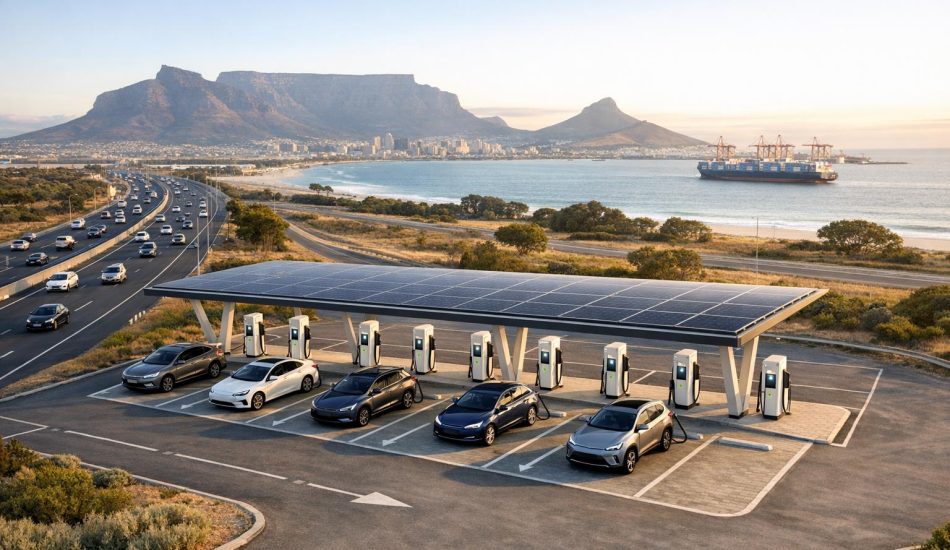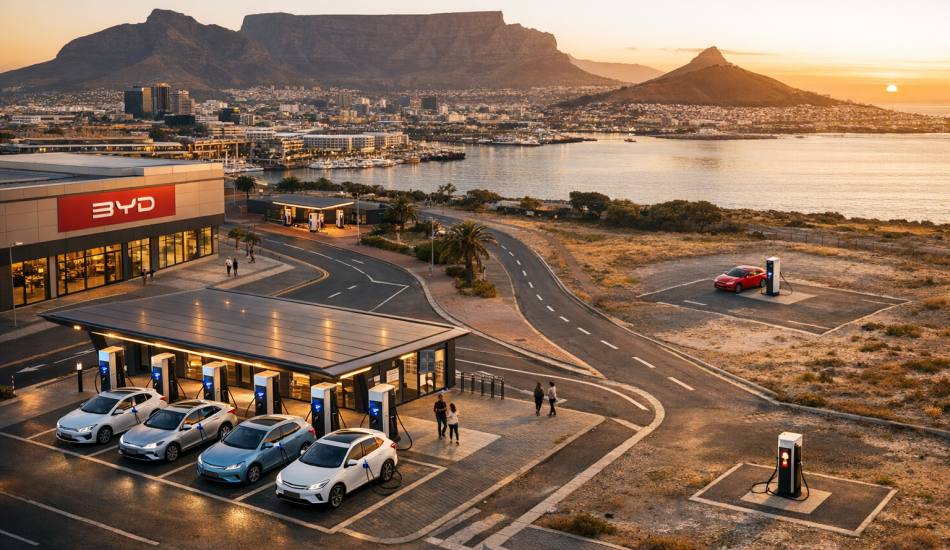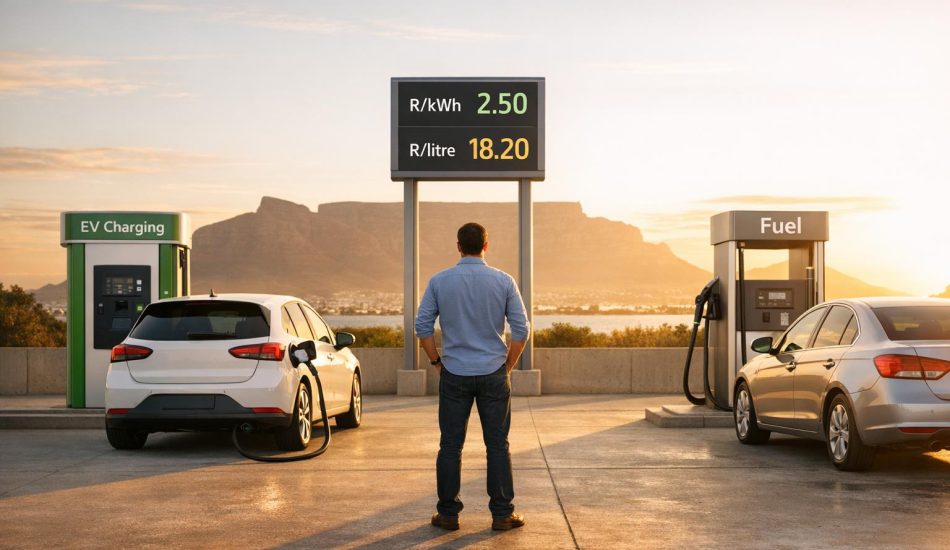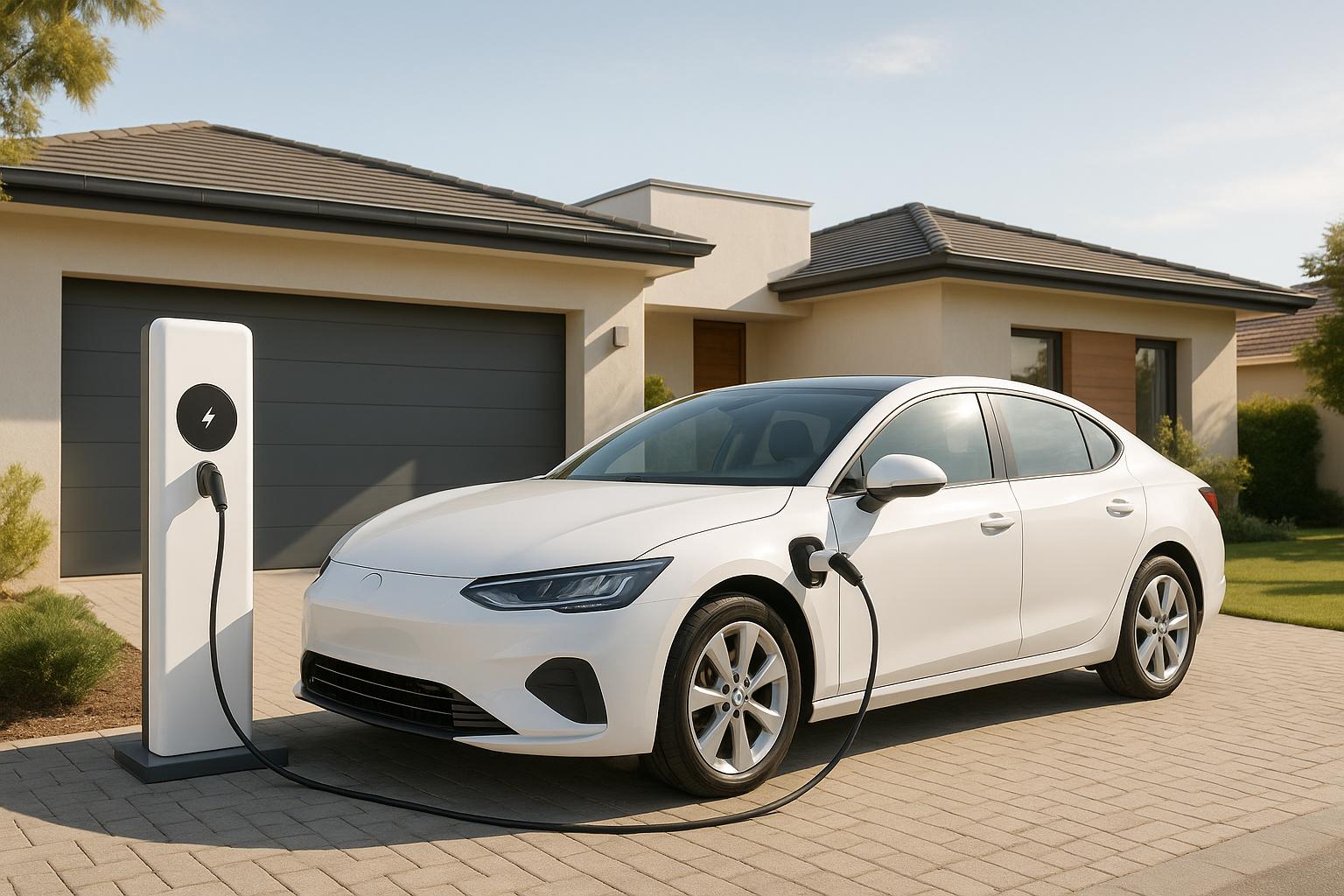
Switching to an electric vehicle (EV) in South Africa can save you money over time, even though the upfront costs are higher than gas-powered cars. Here’s a quick breakdown:
- Upfront Costs: EVs start at $5,880 (R110,000) for entry-level models and go up to $21,430 (R400,000) for premium options.
- Charging Costs: Home charging costs about $11.40 (R213) for a full charge, with electricity rates averaging $0.18–$0.19 per kWh (R3.40–R3.60). Public charging is pricier but mostly used for long trips.
- Maintenance Savings: EVs cost about 30% less to maintain than gas-powered cars due to fewer moving parts and no need for oil changes.
- 5-Year Total Cost: Over five years, EVs can cost less to own than gas cars, especially if you rely on home charging.
- Government Incentives: Reduced import duties and tax benefits exist, but they vary by region and model.
While infrastructure is still growing, home charging makes EVs practical for most daily needs. Long-term savings on fuel and maintenance make EVs a smart choice for South Africans ready to make the switch.
Purchase Price and Financing Options
Electric Vehicle Prices in South Africa
The cost of electric vehicles (EVs) in South Africa varies significantly depending on the model and features. For entry-level options, prices start at about $5,880 (approximately R110,000) for models like the Geely Panda Mini Base. On the other hand, premium models, such as the Leapmotor C16, can cost up to $21,430 (around R400,000).
Here’s a breakdown of EV prices across different categories:
| Price Range | USD Price | ZAR Equivalent | Example Models |
|---|---|---|---|
| Entry-Level | $5,880 – $9,500 | R110,000 – R178,000 | Geely Panda Mini, Dongfeng NanoBox, Leapmotor T03 |
| Mid-Range | $10,880 – $18,900 | R204,000 – R354,000 | BYD Dolphin Active, BYD Qin Plus EV, Leapmotor C10 |
| Premium | $20,500 – $21,430 | R384,000 – R401,000 | BYD Seal 06 GT, Geely Emgrand EV, Leapmotor C16 |
EVs in South Africa tend to come with a higher upfront cost – ranging from $13,000 to $27,000 more – due to factors like import duties, taxes, and exchange rate fluctuations between the South African Rand and currencies like the US Dollar and Chinese Yuan. Additionally, the limited local demand for EVs, as the market is still emerging, means early adopters often face higher prices.
Despite these challenges, the range of price points has led to a variety of financing options to suit different budgets.
Financing Options for Electric Vehicles
Flexible financing solutions are essential for making EV ownership more accessible, given the wide price range. Most buyers rely on traditional bank loans, which offer terms similar to those for conventional vehicles.
Platforms like EV24.africa simplify the buying process by offering clear pricing and adaptable financing plans, helping buyers understand the total cost of ownership. Additionally, the growing market for pre-owned EVs provides a more affordable entry point for potential owners.
While EVs often come with a higher initial price, their lower running and maintenance costs can help balance the scales over time. Smart financing strategies can bridge the gap, allowing buyers to offset the upfront premium with long-term savings.
BYD Dolphin Review: Is This SA’s Best Value EV?
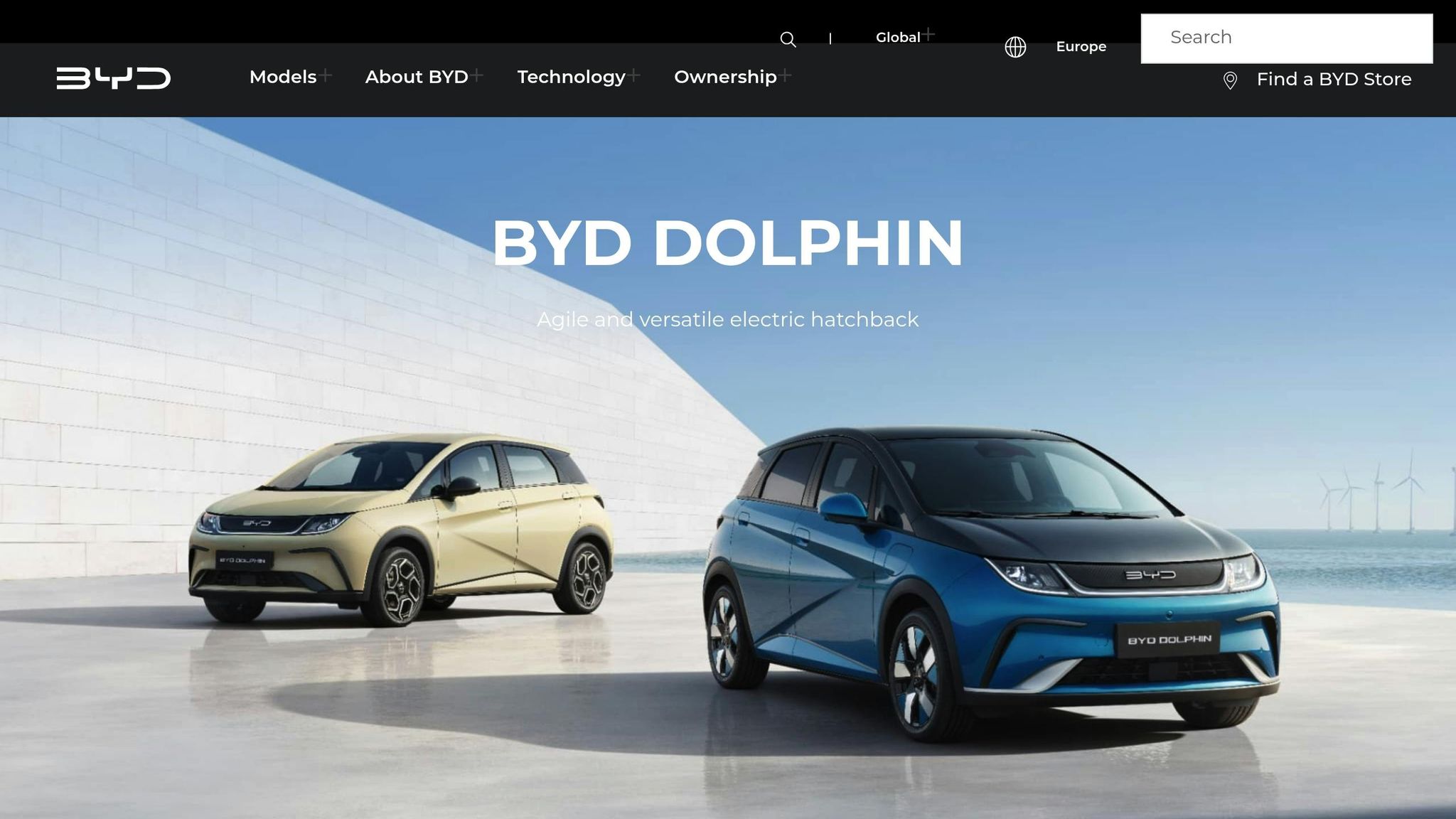
Charging Costs and Infrastructure
The cost of charging and the availability of infrastructure are key factors shaping the experience of owning an EV in South Africa. Whether you’re plugging in at home or using public charging stations, these expenses contribute significantly to the total cost of owning an electric vehicle. South Africa’s charging landscape is evolving, with distinct differences between home and public charging costs.
Home Charging Costs and Setup
Charging your EV at home is often the most affordable option. In South Africa, electricity rates for EV owners average around $0.18 to $0.19 per kilowatt-hour (R3.40 to R3.60 per kWh). A typical battery electric vehicle (BEV) requires about 50 kWh for a full charge, providing approximately 350 kilometers (217 miles) of urban driving range. This translates to a running cost of about 50 South African cents per kilometer, or roughly $0.027 per kilometer (around $0.044 per mile).
For instance, charging a 60 kWh battery at $0.19 per kWh would cost about $11.40 (R213) for a full charge.
To optimize home charging, many EV owners invest in dedicated charging outlets, which offer faster and safer charging options. Additionally, some are installing solar panels or battery storage systems. While these setups require an upfront investment, they can significantly lower – or even nearly eliminate – charging costs at home. They also provide a backup power source during load-shedding periods. Looking ahead, Eskom‘s planned introduction of lower off-peak electricity rates could make overnight charging even cheaper in the future.
For longer trips beyond your daily routine, public charging becomes a key consideration.
Public Charging Stations and Costs
South Africa’s public charging network is growing, though it’s still less widespread compared to home charging options. Costs at public charging stations can vary based on the provider and tariff. For long-distance travel – like the journey from Johannesburg to Cape Town – EV drivers often depend on fast chargers located along key routes. In these cases, the cost per kilometer can be similar to what internal combustion engine drivers pay for fuel.
Some charging networks offer fixed-rate packages, but service fees and infrastructure costs typically make public charging more expensive than charging at home. Because of this, most EV owners rely on home charging for their daily needs, turning to public stations only for road trips or emergencies. These additional public charging costs are an important part of the overall expense of owning an EV.
Maintenance and Running Costs
One of the standout financial perks of electric vehicles (EVs) is their lower maintenance costs, thanks to their simpler design and fewer moving parts compared to traditional gas-powered cars. Internal combustion engines (ICEs) are complex, with thousands of components that need regular upkeep. In contrast, electric motors have only a small number of parts, eliminating the need for routine expenses like oil changes or spark plug replacements. For context, in South Africa, maintaining a gas-powered car can cost anywhere from $80 to $187 (R1,500 to R3,500) for minor services, and $187 to over $427 (R3,500 to R8,000+) for major services. Luxury vehicles push these costs even higher, often ranging from $267 to $800+ (R5,000 to R15,000+).
Why EVs Cost Less to Maintain
Electric vehicles are easier on your wallet when it comes to maintenance because their mechanical design is far less complicated. Unlike gas-powered cars, which rely on thousands of moving parts, EVs use electric motors with only a handful of components that require attention.
"Yes! EVs have fewer moving parts, reducing maintenance costs." – e-CAR Service Centres
Gas-powered cars in South Africa come with regular service requirements, with minor services priced between $80 and $187 (R1,500 to R3,500) and major services costing $187 to over $427 (R3,500 to R8,000+). For luxury or high-performance models, maintenance bills can soar to $267–$800+ (R5,000 to R15,000+). EVs sidestep many of these costs by eliminating the need for things like oil changes or spark plug replacements, making them a more cost-effective choice in the long run.
sbb-itb-99e19e3
Government Incentives and Tax Benefits
In South Africa, government incentives and tax benefits play a growing role in shaping the financial appeal of owning an electric vehicle (EV). These measures aim to make EVs more accessible while encouraging their adoption.
Available Incentives for Electric Vehicle Buyers
The government provides several financial perks for EV buyers. These include reduced import duties, tax benefits for businesses, and localized incentives like lower registration fees in some areas. Additionally, certain regions may offer support for charging infrastructure. However, these benefits often come with specific eligibility requirements.
Incentive Restrictions and Limitations
It’s important to note that these incentives are not universal. They may apply only to specific EV models or be available exclusively to businesses. Furthermore, the type and extent of incentives can vary depending on the region and the vehicle. To stay updated, it’s best to check with organizations like the Department of Trade, Industry and Competition, local municipalities, or the South African Revenue Service for the latest information.
Electric vs Gas Vehicle Cost Comparison
When choosing between an electric vehicle (EV) and a traditional gas-powered car in South Africa, it’s essential to look beyond the upfront price tag. While EVs often come with a higher initial cost, their lower running expenses and reduced maintenance needs can balance out the price difference over time. Let’s break this down over a five-year period to better understand the costs.
5-Year Total Cost of Ownership
When evaluating the total cost of ownership over five years, several factors come into play: energy costs, maintenance, insurance, and depreciation. Although EVs usually have a higher purchase price, the savings from home charging and fewer maintenance requirements help close the gap with gasoline vehicles.
For instance, EVs require less maintenance because they have fewer moving parts and don’t need regular services like oil changes. On the other hand, insurance for EVs can be slightly more expensive due to their higher initial cost and specialized repair needs. However, this difference is becoming less pronounced as EVs gain wider acceptance and their depreciation rates stabilize over time.
Conclusion: Key Points
Owning an electric vehicle (EV) in South Africa makes financial sense, even with the higher upfront costs. Entry-level EVs are priced around $5,880, while premium models average about $21,430. However, when looking at the total cost of ownership over five years, EVs often come out ahead. For instance, a mid-range EV priced at $21,000 typically costs about $28,000 to own over five years, compared to $30,000 or more for a similar gasoline-powered car.
The real savings come from operating costs. Charging an EV is much cheaper than filling up a petrol vehicle, making a noticeable difference for frequent drivers, especially those who can rely on home charging.
That said, infrastructure challenges do exist. By 2025, only about 387 public charging stations are expected to be available. While this could pose issues for long-distance travel, most daily commutes can be easily managed with a dependable home charging setup.
As competition in the EV market grows, prices are becoming more appealing, offering better value for buyers in the near future.
For South Africans considering the switch, EV24.africa simplifies the process with clear pricing and flexible financing options, making the transition to electric vehicles easier than ever.
The numbers speak for themselves: EV ownership in South Africa is a smart choice, particularly for those who can maximize home charging and plan to keep their vehicles for several years.
FAQs
What are the long-term cost savings of owning an electric car in South Africa compared to a gas-powered vehicle?
Owning an electric vehicle (EV) in South Africa can lead to considerable savings over time. One of the main reasons is that EVs come with lower maintenance expenses. With fewer moving parts, they eliminate the need for oil changes and costly engine repairs that are common with traditional gas-powered cars.
On top of that, charging an EV is typically cheaper than filling up a gas tank – especially if you can take advantage of off-peak electricity rates by charging at home.
These savings can really add up in the long run, making EVs an economical choice. And with ongoing advancements in EV technology and the possibility of expanded government incentives, the financial advantages of switching to electric are only expected to increase.
How does South Africa’s charging infrastructure impact the convenience of owning an electric car?
The practicality of owning an electric vehicle (EV) in South Africa hinges significantly on the availability of charging stations. In urban hubs like Cape Town and Johannesburg, charging networks are steadily growing. However, in rural areas, access remains limited, which can make long-distance travel a bit trickier.
For most EV owners, charging at home stands out as the most affordable and convenient solution. On the other hand, public charging stations – especially fast chargers – tend to be pricier and are not yet as widely available. Still, as charging infrastructure expands, EV ownership is becoming more feasible, particularly for those residing in or near major cities.
What financing options are available for buying an electric car in South Africa, and how can they make the higher upfront cost more manageable?
When it comes to financing electric vehicles (EVs) in South Africa, buyers have a few key options: traditional car loans, leasing agreements, and specialized green financing programs offered by certain banks. These choices make it easier to handle the higher upfront cost by breaking it down into manageable monthly payments.
Some banks and financial institutions sweeten the deal by offering lower interest rates or specific incentives for purchasing eco-friendly vehicles. These perks can help ease the financial strain even further. It’s also worth checking for any government incentives or tax breaks that might be available, as they could significantly reduce the overall cost of owning an EV. Comparing financing terms thoroughly can help you find the best fit for your budget and needs.


